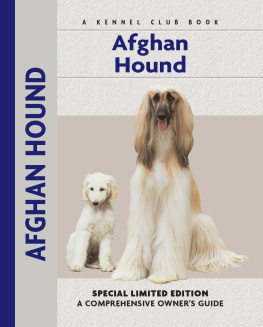PREFACE.
The following pages pretend to give nothing more than a short summary of events already recorded by recognised authorities.
THE
FIRST AFGHAN WAR.
It was in the year 1808, when the power of Napoleon was at its height, that diplomatic relations were first opened between the Courts of Calcutta and Cabul. Napoleon, when in Egypt, had meditated on the chances of striking a fatal blow at England through her Indian dependencies; some correspondence had actually passed between him and Tippoo Saib on the subject, and subsequently, in 1801, he had concluded a treaty with the Russian Emperor Paul for an invasion of India by a force of 70,000 men, to be composed of equal parts of French and Russian troops. The proposed line of march was to lie through Astrakhan and Afghanistan to the Indus, and was to be heralded by Zemaun Shah, who then ruled at Cabul, at the head of 100,000 Afghans. There was but little danger indeed to be apprehended from Afghanistan alone, but Afghanistan with Russia and France in the background was capable of proving a very troublesome enemy. In such circumstances the attitude of Persia was of the last importance, and Marquess Wellesley, then Viceroy of India, at once proceeded to convert a possible enemy into a certain and valuable ally. A young officer who had distinguished himself under Harris at Seringapatam was selected for this delicate service. How the young captain, whom Englishmen remember as Sir John Malcolm, fulfilled his mission is matter of history. A thorough master of all Oriental languages, and as skilful in council as he was brave in the field, Malcolm soon pledged the Court of Persia to the interests of England, and not only was it agreed that the two contracting parties should unite to expel any French force that might seek to gain a footing on any of the islands or shores of Persia, but the latter Government bound itself to "slay and disgrace" any Frenchman found in the country. This treaty, which may be thought to have somewhat dangerously stretched the bounds of diplomatic hostility, was, however, never formally ratified, and internal dissensions, culminating in the deposition of Zemaun Shah by his brother Mahmoud, removed all danger from our frontier for a time.
But the idea still lived in Napoleon's restless heart. The original treaty with Paul was discussed with his successor Alexander, and in 1808 a French mission, with the avowed design of organizing the proposed invasion, was despatched, not to Cabul, but to Teheran. The magic of Napoleon's name was stronger even than British eloquence and British gold, and Malcolm, once all-powerful in Iran, when he sought to renew the former pledges of amity, was turned back with insult from the Persian capital. A second mission, however, despatched direct from London under the guidance of Sir Harford Jones, was more fortunate. Napoleon had been defeated in Spain, and the news of his defeat had spread. Russia was something less eager for the French alliance than she had been in 1801, while between the Muscovites and the Persians there had long existed a hereditary feud, which the proposed league had by no means served to extinguish. The English envoy, skilfully piecing together these broken threads to his own ends, was enabled with little loss of time to conclude an offensive and defensive alliance between Great Britain and Persia, the earliest result of which was the immediate dismissal of the French mission. By this treaty the Persian King bound himself not to permit the passage through his dominions of any force hostile to India, and, in the event of war arising between England and Afghanistan, to invade the latter at the cost of the former; furthermore, he declared null all treaties previously concluded by him with any other European power. The English, in their turn, pledged themselves to assist him, should his kingdom be invaded, either with men or money and arms, but should the war be one only with Afghanistan, they were not to interfere unless their interference was sought by both parties. Though this treaty was concluded in 1808-9, it was not formally ratified till November 15, 1814.
Not on Persia alone, however, was the English Government content to rely. In a friendly Afghanistan was a second most serviceable string which it had been the height of imprudence to let another fit to his bow. The two countries stood in almost precisely similar relations to English India; each as an enemy contemptible single-handed, but a dangerous item in an invading force; each a useful ally, and each a salutary check upon the other. At the same time, then, as Sir Harford Jones was neutralizing the French influence at Teheran, the Honourable Mountstuart Elphinstone was despatched by Lord Minto, who had succeeded Lord Wellesley at Calcutta, to the Court of Cabul.
Previous to the year 1808 Afghanistan was practically a terra incognita to Englishmen. Zemaun Shah, the once terrible Ameer whose threatened invasion had disturbed even the strong mind of Lord Wellesley, was, indeed, in their hands, living, dethroned and blinded, a pensioner on their bounty at Loodhianah, but of the country he had once ruled over and of the subjects who had driven him into exile but little was known in Calcutta and still less in London. Before the close of the eighteenth century but one Englishman had ever penetrated into that unknown land. Forster, a member of the Bengal Civil Service, in 1783-84 had crossed the Punjab to Cashmere, and thence had descended through the great Khyber and Koord-Cabul passes to the Afghan stronghold, whence journeying on by Ghuznee, Candahar, and Herat he had won his way to the borders of the Caspian Sea. His book was not published till some fifteen years after, and shows chiefly, to use Kaye's words, "how much during the last seventy years the Afghan Empire and how little the Afghan character is changed." But the labour and intelligence of one man, however much they may profit himself, have rarely by themselves added much to the knowledge of a nation. Many well-read Englishmen could still own to little more than a vague idea of Afghanistan; that it was a bare and rocky country, which the heat of summer and the cold of winter alike rendered impervious to travellers, happily shut out from more civilised regions by a mighty barrier of mountains, topped with eternal snow, through which, by passes inaccessible to all save the mountaineers themselves, hordes of savage warriors had in earlier days poured down in irresistible flood on the fertile valleys of the Indus. Elphinstone let in more light on the gloomy and mysterious scene. Though with his own eyes he saw but little of the country and the people, as his journey was stayed at Peshawur, he acquired from various sources a vast amount of information, which he reproduced with extraordinary distinctness. His book rapidly became the acknowledged text-book of the history and geography of the country, and may still be read with pleasure and studied with profit. It would have been well if one of the lessons he taught had been better laid to heart; and thirty years later his unfortunate namesake must have recalled with peculiar bitterness all he had once read of the ingrained treachery of the Afghan character. The mission was in itself entirely successful, though the rapid march of events soon neutralised, and eventually wholly destroyed its work. Shah Soojah, a name to be before many years but too familiar to English ears, received the envoys at Peshawur, then one of the chief cities of his kingdom. He appeared to them in royal state, seated on a golden throne, and blazing with jewels, chief among which shone forth in a gorgeous bracelet the mighty Koh-i-noor. Nor were the English outdone in magnificence. The entire mission was on a scale of profuse splendour, and the presents they brought with them so numerous and so costly that when, thirty years later, Burnes arrived in Cabul the courtiers turned in disgust from what Kaye contemptuously calls "his pins and needles, and little articles of hardware, such as would have disgraced the wallet of a pedlar of low repute." The envoys were most hospitably received, and Elphinstone formed a very favourable opinion of the character of Soojah, whom he described as both affable and dignified and bearing the "manners of a gentleman." He listened attentively to the envoys' proposals, and declared that "England and Cabul were designed by the Creator to be united by bonds of everlasting friendship," but at the same time he confessed his country to be in such an unsettled condition, and his own throne so insecure, that, for the present, the best advice he could give the English gentlemen was that they should retire beyond the frontier. On June 14th, 1809, therefore, the mission set out on its homeward journey, having, however, arranged a treaty, which was shortly after formally ratified by Lord Minto at Calcutta, by which Soojah bound himself to treat the French, if allied with the Persians, much as the Persian monarch had pledged himself to behave to them if allied with the Afghans. But even at the very time of ratification this treaty had been practically rendered null by the success of Sir Harford Jones's mission to Teheran, and within a year Soojah had been deposed by his brother Mahmoud, from whom he had himself wrested the crown, and was a captive in the hands of Runjeet Singh.












